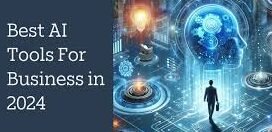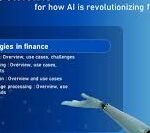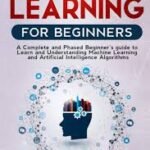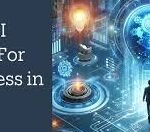Artificial Intelligence (AI) is revolutionizing the business world, offering tools that enhance efficiency, improve customer experience, and drive growth. Artificial Intelligence (AI) tools are increasingly becoming integral to businesses across industries, driving efficiency, innovation, and competitive advantage. As we look forward to 2024, several AI tools stand out for their transformative impact on business operations. This article explores the top AI tools that are expected to shape businesses in 2024, highlighting their functionalities, applications, and benefits.
OpenAI’s GPT-4
OpenAI’s GPT-4 is a powerful natural language processing tool that can generate human-like text, answer questions, and assist with creative writing tasks. Businesses use GPT-4 for customer support, content creation, and automating repetitive tasks, enhancing productivity and reducing costs. Natural Language Processing (NLP) tools leverage AI algorithms to understand, interpret, and generate human language. In 2024, advanced NLP tools like OpenAI’s GPT-4 and Google’s BERT are expected to dominate. These tools can analyze large volumes of text data, automate content generation, improve customer service interactions through chatbots, and enhance sentiment analysis in marketing campaigns.
Salesforce Einstein
Salesforce Einstein is an AI-powered platform that integrates with Salesforce to provide advanced analytics and predictive insights. It helps businesses improve sales forecasting, personalize customer experiences, and automate marketing tasks, making data-driven decisions more accessible and effective. Predictive analytics platforms utilize machine learning algorithms to forecast future trends and behaviors based on historical data. Tools such as IBM Watson Studio and Microsoft Azure Machine Learning are empowering businesses to make data-driven decisions in areas like sales forecasting, inventory management, customer segmentation, and risk assessment.
IBM Watson
IBM Watson offers a suite of AI tools designed for businesses, including natural language processing, machine learning, and data analytics. Watson assists in various applications such as customer service, fraud detection, and healthcare diagnostics, helping businesses leverage AI to solve complex problems. Computer vision solutions enable machines to interpret and analyze visual information from images or videos. AI tools like AWS Rekognition and OpenCV are utilized for applications such as object detection, facial recognition, quality control in manufacturing, and autonomous vehicle navigation.
Microsoft Azure AI
Microsoft Azure AI provides a comprehensive set of AI services and tools, including machine learning, cognitive services, and bot services. Businesses use Azure AI to build, deploy, and manage AI applications, enabling automation, enhancing decision-making, and improving operational efficiency. Robotic Process Automation (RPA) tools automate repetitive tasks and workflows using AI and machine learning capabilities. Tools like UiPath and Automation Anywhere streamline back-office processes, data entry, invoice processing, and customer support operations.
Google Cloud AI
Google Cloud AI offers robust machine learning and AI capabilities, including pre-trained models and custom model training. Businesses utilize Google Cloud AI for image and video analysis, natural language understanding, and predictive analytics, driving innovation and operational improvements. Chatbot development platforms enable businesses to create AI-powered virtual assistants for customer service, sales support, and internal operations. Platforms such as Chatfuel, Dialogflow, and Microsoft Bot Framework facilitate the development of conversational AI agents that can engage users, answer inquiries, and perform transactions.
ChatGPT for Customer Support
ChatGPT, an AI language model by OpenAI, is widely used for customer support. It can handle customer inquiries, provide personalized responses, and automate routine tasks, improving customer satisfaction and freeing up human agents to focus on more complex issues. AI-powered CRM systems enhance customer relationship management by analyzing customer data to deliver personalized experiences and predictive insights. Salesforce Einstein and Zoho CRM utilize AI for lead scoring, churn prediction, sales forecasting, and recommending next-best actions for sales and marketing teams. In 2024, AI will further optimize CRM systems by improving data integration, automating routine tasks, and enhancing customer engagement strategies.
Hootsuite Insights
Hootsuite Insights leverages AI to provide social media analytics and monitoring. It helps businesses track brand sentiment, identify trends, and understand audience preferences, enabling more effective social media strategies and better engagement with customers. Virtual Reality (VR) and Augmented Reality (AR) tools integrate AI for immersive experiences in training, product visualization, and virtual collaboration. Platforms like Oculus for Business and Microsoft HoloLens enable businesses to create interactive simulations, virtual meetings, and remote training programs.
Adobe Sensei
Adobe Sensei is an AI and machine learning platform integrated into Adobe’s creative and marketing products. It enhances tasks such as image editing, video production, and digital marketing by providing intelligent features that save time, improve quality, and personalize customer experiences. AI-powered Business Intelligence (BI) platforms transform raw data into actionable insights for strategic decision-making. Tools such as Tableau, Power BI, and Qlik Sense utilize AI algorithms for data analysis, visualization, and predictive modeling. In 2024, BI platforms will evolve with AI capabilities for automated data preparation, anomaly detection, and natural language querying, empowering business users to derive deeper insights faster.
HubSpot AI
HubSpot AI offers a range of AI-powered tools for marketing, sales, and customer service. Features include predictive lead scoring, content optimization, and conversational bots. These tools help businesses enhance their marketing efforts, close more deals, and improve customer support. Autonomous vehicles and drone technologies integrate AI for navigation, obstacle detection, and decision-making in transportation, logistics, and delivery operations. Companies like Tesla, Waymo, and Amazon Prime Air are advancing AI-driven autonomous vehicle and drone technologies for safe and efficient transportation of goods and services.
Tableau AI
Tableau AI integrates with Tableau’s data visualization platform to provide advanced analytics and predictive insights. It helps businesses uncover trends, make data-driven decisions, and visualize complex data sets, enhancing their ability to analyze and interpret data effectively. AI-enhanced cybersecurity solutions use machine learning algorithms to detect, analyze, and respond to cyber threats in real-time. Tools such as Darktrace and Palo Alto Networks Cortex XDR leverage AI for anomaly detection, threat hunting, and automated incident response. AI will play a crucial role in strengthening defenses against evolving cyber threats, protecting sensitive data, and ensuring compliance with regulatory requirements.
Drift Conversational AI
Drift Conversational AI offers intelligent chatbots and virtual assistants for businesses. These tools automate customer interactions, qualify leads, and provide instant support, improving customer engagement and streamlining sales processes, ultimately driving revenue growth. AI-driven supply chain optimization tools optimize inventory management, demand forecasting, logistics planning, and supply chain resilience. Platforms like Llamasoft and Blue Yonder use AI algorithms to analyze data from multiple sources, predict supply chain disruptions, and optimize operational efficiency.
Zoom AI
Zoom AI includes features like real-time transcription, meeting highlights, and automated scheduling. These AI-powered tools enhance virtual meetings by improving accessibility, enabling efficient note-taking, and automating administrative tasks, making remote work more productive. AI-assisted talent acquisition and HR tools streamline recruitment, candidate screening, and employee management processes. Platforms such as LinkedIn Talent Solutions and IBM Watson Recruitment use AI for resume parsing, candidate matching, and employee engagement analysis.
Grammarly Business
Grammarly Business uses AI to enhance written communication within organizations. It provides real-time grammar and style suggestions, tone detection, and plagiarism checks, ensuring professional and effective communication, reducing errors, and maintaining brand consistency. AI-driven content creation and marketing tools automate content generation, optimization, and campaign management. Tools like HubSpot’s Content Strategy and Adobe Sensei enable businesses to create personalized content, optimize SEO strategies, and analyze marketing performance using AI-driven insights.
SAP Leonardo
SAP Leonardo is an AI and machine learning platform that integrates with SAP’s enterprise software. It helps businesses optimize processes, predict outcomes, and automate tasks across various functions, including supply chain management, finance, and human resources. AI applications in finance and investment management utilize machine learning algorithms for portfolio optimization, risk management, algorithmic trading, and fraud detection. Platforms such as Bloomberg Terminal and Wealthfront leverage AI for predictive analytics, sentiment analysis, and financial forecasting.
NVIDIA Clara
NVIDIA Clara is an AI platform for healthcare and life sciences. It provides tools for medical imaging, genomics, and drug discovery, enabling healthcare organizations to accelerate research, improve diagnostics, and develop new treatments, enhancing patient care and operational efficiency. AI-powered compliance and legal tools automate regulatory compliance monitoring, contract analysis, and legal research. Tools like Kira Systems and Luminance utilize AI for document review, due diligence, and risk assessment to ensure compliance with laws and regulations.
Zoho AI
Zoho AI offers a range of AI-powered features across Zoho’s suite of business applications. These include sales forecasting, anomaly detection, sentiment analysis, and workflow automation. Zoho AI helps businesses improve productivity, enhance customer experiences, and make better-informed decisions. As businesses increasingly adopt AI tools, ethical considerations and governance frameworks become essential. AI ethics tools and governance platforms, such as IBM AI Fairness 360 and PwC Responsible AI Toolkit, promote transparency, fairness, and accountability in AI applications.
AI tools are transforming the way businesses operate, offering innovative solutions that enhance efficiency, improve customer experiences, and drive growth. By leveraging these AI tools, businesses can stay competitive, adapt to changing market demands, and achieve their strategic goals. AI tools are poised to transform businesses in 2024 across various domains, from enhancing operational efficiency and customer experiences to driving innovation and competitive advantage. Embracing AI-powered technologies enables businesses to leverage data-driven insights, automate processes, and unlock new growth opportunities. As AI continues to evolve, businesses must navigate challenges such as ethical considerations, data privacy concerns, and workforce readiness to harness AI’s full potential effectively.







